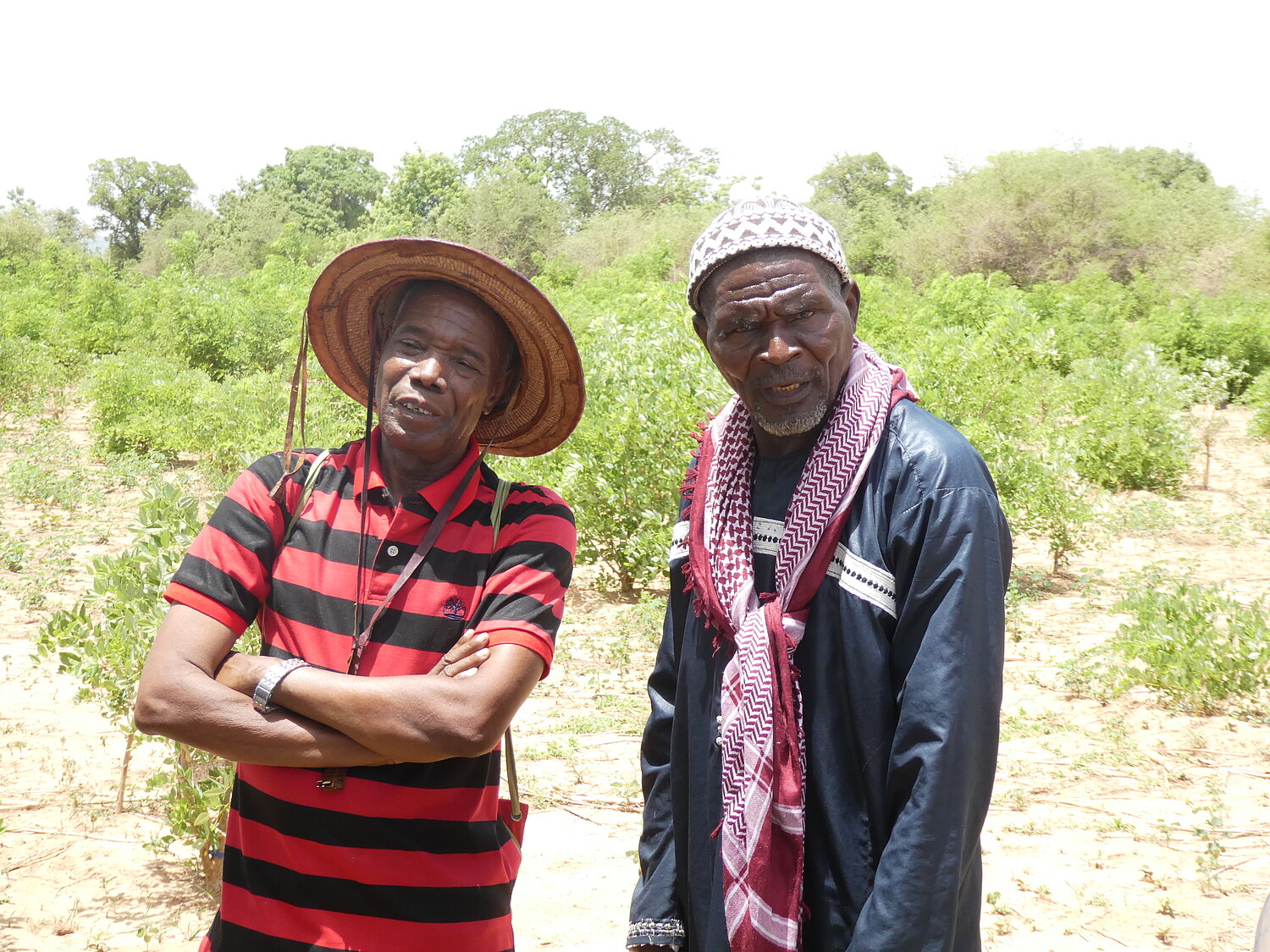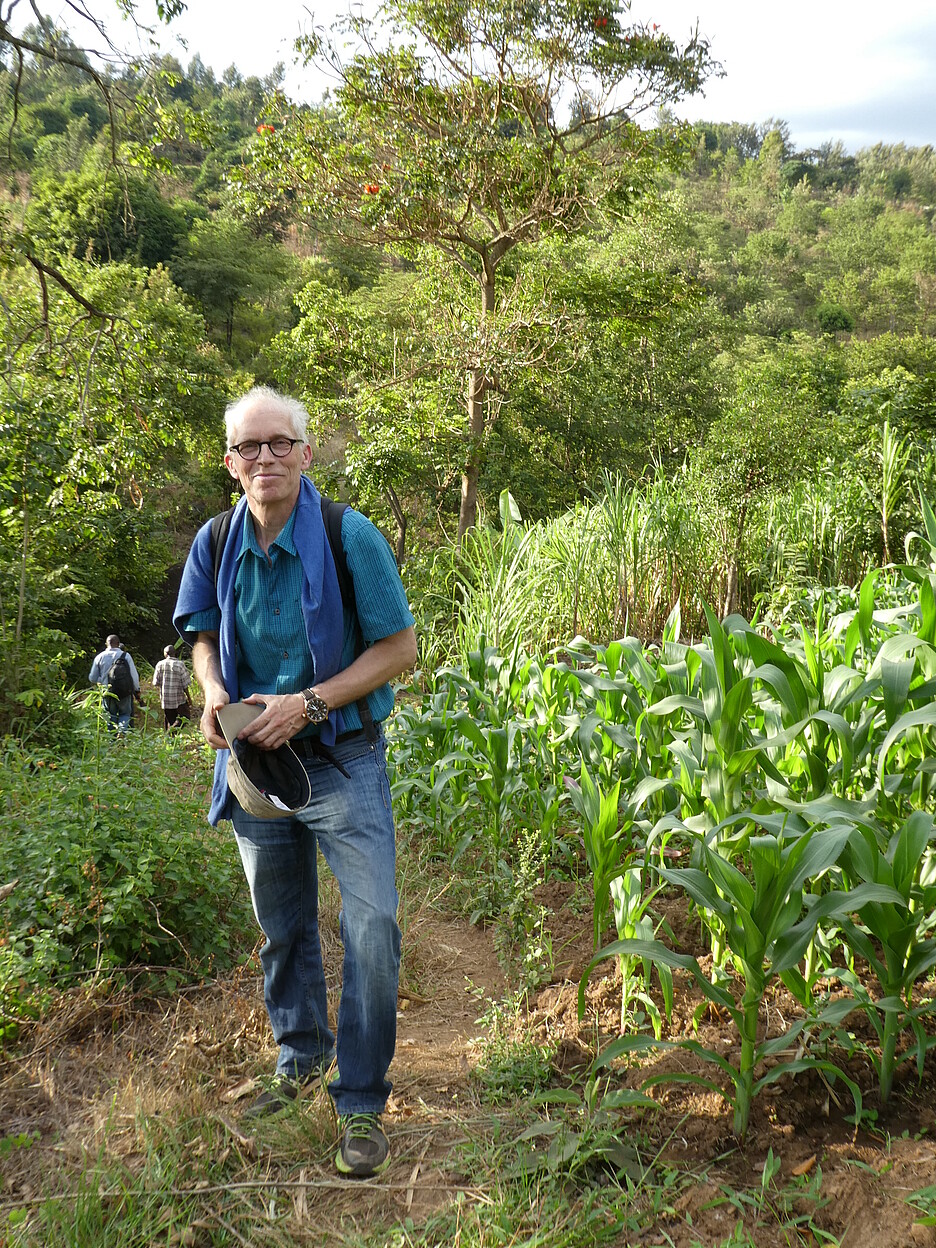
Keeping arable land fertile thanks to radio information
Smallholder farmers in Africa very rarely make use of methods to keep their soil fertile. Researchers of ZHAW Zurich University of Applied Sciences are looking for new ways to bring this knowledge to the farmers.
Until a year ago, Lawrence Mbwirumwaji simply kept an eye on the weather. When he thought the rainy season was about to start, he planted tomatoes, maize, beans, onions and cabbage in his field in the Kenyan village of Mwanjati. But the plants on his 1.2 hectare field were going from bad to worse. “My harvest was declining”, he says. Now, the farmer knows why: “I didn’t pay enough attention to giving the soil a chance to recover.”
Forgotten technologies that work
Mbwirumwaji is taking part in the ‘Farmer driven organic resource management to build soil fertility’ project (ORM4Soil). “We’re investigating why smallholders in Africa rarely make use of tried and tested methods to build and maintain soil fertility,” explains Christoph Spurk, Project Manager for media and journalism research projects in developing countries at the Institute of Applied Media Studies (IAM). The aim of the six-year interdisciplinary project is to educate farmers in Mali, Kenya, Zambia and Ghana on how they can increase the fertility of the soil, and to persuade them to continue using these methods. The project expires at the end of the year.
“I didn’t pay enough attention to giving the soil a chance to recover.”
Spurk and his team from IAM are handling the sociological survey and the strategy for communication between researchers and farmers. The Research Institute for Organic Agriculture (FibL) covers the agronomic side. In 12 partner institutions in these four African nations and in Switzerland, a total of 21 researchers in agronomy, sociology and communication studies are working together. They’re looking after 1,800 smallholder farmers. In addition, 25 students from African universities are writing their master’s and doctoral theses as part of ORM4Soil.
The farmer Mbwirumwaji is happy with the new knowledge he has gained thanks to the training. He’s no longer digging up his entire field; now, he only digs holes where he wants to put in a plant. He has also switched to intercropping, so he grows beans along with his maize. The leaves of the maize plant protect the soil from the sun, and the roots of the beans provide nutrients for the maize.
Intercropping, animal manure or other methods
Methods for building and maintaining soil fertility vary depending on geographic, climatic and cultural factors. For instance, farmers can work leaves and twigs of the tree variety Gliricidia sepium, which is planted between rows of maize and sorghum, into the soil to create humus. They can also feed some of the leaves to their goats. However, the seedlings have to be fenced in at first, otherwise the goats will eat them. Other methods include spreading large quantities of animal dung over the field, taking the empty oil palm fruit bunches left after harvesting and cutting them into small pieces to be worked into the soil, or intercropping, as practised by Mbwirumwaji on his farm in Kenya.
Cultural obstacles
However, not everyone has as much success with the scheme as Mbwirumwaji. Sometimes cultural obstacles stand in the way. In some regions in Mali, women are not allowed to plant trees. Only men are allowed to do that, because that’s how they mark their territory. For others, the workload is too much. “Try hauling 50 wheelbarrow loads of dung around a field and spreading it by hand!”, says Spurk. It’s also tedious work cutting up masses of greenery with secateurs and spreading it over the field.
“Some participants give up”, says Spurk regretfully. At the eight locations where the project is running, the drop-out rate is between one and 41 per cent, depending on the method. As a next stage, Spurk would like to see a study of why some farmers give up and what could be done to help them stick to it. Innovations such as equipment to chop up branches or fruit stalks, or a cooperative that composts livestock manure for everyone in the village and takes it to the fields, could make the work easier, Spurk believes.

But the researcher also sees room for improvement in communicating with the farmers. As part of the project, for which the Swiss National Science Foundation and the Swiss Agency for Development and Cooperation are providing a total of 3.3 million francs in funding, information is provided over the radio in the local language. The journalists involved and the experts consulted don’t always make it sufficiently clear that it pays off in the long term if the soil is kept fertile, and that the soil’s ability to retain water and make it available for plants also increases. Where the radio provides good information, the farmers are more interested, says Spurk.
Knowledge from the radio
Journalists from Radio Breeze FM in the Zambian provincial capital Chipata invite experts with in-depth knowledge to join in discussions, and go and visit the farms to see for themselves whether the peasant farmers are happy with the new way of working. “We have a lot of feedback from listeners”, says Samuel Ndhlovu, manager of Breeze FM. For instance, farmers ask how far apart they should plant the plants when intercropping, or how often they should fertilise with livestock manure. “Many are grateful that they’re getting extra training free of charge on the radio”, says Ndhlovu.

Communication expert Spurk takes a similar view. “Farmers in African countries have little opportunity to improve their skills. They could be offered training over the radio that would lead to a qualification”, he says. But why don’t farmers in Africa know how to treat the soil and their plants? After all, agriculture has been practised for centuries in that part of the world. Spurk hasn’t looked into that question, but he’s willing to hazard a guess: “With population pressure and climate change, the basic conditions have changed dramatically.” For instance, large families can no longer afford to leave a field lying fallow, as was traditional in the past.
“If everyone in the village takes part, we can feed ourselves and sell our surplus in the market.”
In any case, Kenyan farmer Mbwirumwaji swears by his new knowledge. “If everyone in the village takes part, we can feed ourselves and sell our surplus in the market”, he says. Then the young people wouldn’t need to move away to the city anymore. “They just hang around there without jobs”, says Mbwirumwaji regretfully.
0 Comments
Be the First to Comment!